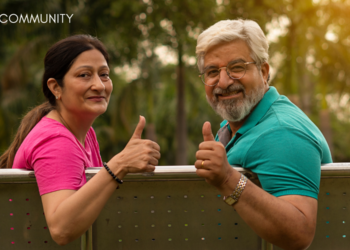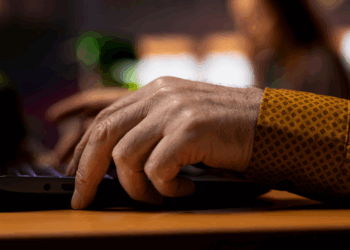
Join Now >
Falls are the leading cause of fatal and non-fatal injuries across the world. According to the WHO estimate, falls are the second leading cause of mortality worldwide, and it is estimated that 80% of the falls occur in low- and middle-income countries, of which South East Asia accounts for 60% of fall-related mortalities.
Injuries are the major reasons for high out of pocket expenditure as well as other serious health issues. Nowadays, unintentional injuries are gaining attention, especially among the senior citizens. Due to the fear of fall, elderly people tend to compromise social interaction, and quality of life by limiting mobility, and hence there is a diminished sense of well-being
As we age, often we tend to lose muscle mass and strength. Our lifestyle dictates our diet and many elders end up deficient in multiple vitamins and minerals. This causes weakness and in turn may cause falls. There are many other factors contributing to increasing risk of falling amongst elderly population e.g. diminished vision, gait problems, fluctuations in blood pressure, neurological disorders, dehydration and stress etc.
Ask any elder and if they have ever had a fall, chances are that they are afraid of falling again and have drastically altered their daily living habits, prompting them to change their gait in ways that worsen balance. The following steps can help in avoiding that fall:
1. Attend to Your Environment
Try and make your immediate environment i.e. your home, a fall free place. Remove throw rugs, improve poor lighting, and watch out for small animals/ pets who like to be underfoot.
A pet may need retraining to respond better to elder’s voice commands. Wear well-fitting, low-heeled, supportive shoes with nonslip soles, indoors as well as outside.
2. Better Your Balance
When it comes to strength and balance, consider the Asian mind-body exercise of Tai-Chi. A martial art like Tai-Chi can significantly reduce fall risk in older adults by improving their static endurance and dynamic balance. This helps the elders in standing upright for longer duration as well as moving around better, both indoors as well as outdoors. There are also a few more simple exercises that you can do from the comfort of your own hope, that will aid in improving your balance, check them out here.
3. Work on your hip strength
The hip muscles are some of the more important muscles to strengthen. These muscle groups have to be strong to arrest that sudden fall. Given below is a great exercise to strengthen them:
Clamshells:
This exercise helps strengthen the hip muscles, specifically the sides of the hips that help provide support and stability for the pelvis and improve standing balance. To perform this exercise:
- Lie on any one side with your knees bent over one another
- Keeping your lower knee on the ground, push your other knee out to the side
- Hold for three seconds, then bring your knees back together
- Repeat for 10 repetitions
- Rest, then change side and repeat for another set of 10 repetitions
Check out the exercise video if you have any doubts:
4. Check your eyes and ears
With vision, we experience changes in depth perception and color discrimination with age, and these affect what we see and don’t see in our environment. A poor-fitting mask these days may be a concern, too. Your ability to see your feet may be impaired, and it might affect your field of vision. If you wear eyeglasses, a mask can also cause them to fog up, and if you have hearing aids, the mask strap can interfere. Hence it is important to use a mask that fits closely around your nose or has a nose wire to reduce the fog. Some masks have straps that go around the back of your head, instead of the ears. One can explore those options too.
Poor hearing has a direct relation to losing body balance and this may also pose a problem. So ensure that you are regularly consulting your physician and getting your vision and hearing screenings done, in addition to wearing glasses and hearing aids as prescribed.
5. Watch your meds
Majority of seniors take some form of medication. This can increase the risk of drug interactions and side effects such as dizziness, foggy thinking, and low blood pressure. For instance, some high blood pressure medications can cause symptoms that alter balance. The use of antidepressants, antipsychotics and sedatives in older adults should also be limited to reduce fall risk.
6. Important facts to know about falls
- Falls and fractures are more common in females
- Falls due to intrinsic causes and recurrent falls are more common in senior citizens above the age of 70 years.
- The elders who are sedentary, experience a fall more frequently than the elders who exercise regularly.
- The major causes of falls in senior citizens are musculoskeletal problems, visual defects, neurological illness, hypertension and dementia etc.
- Senior citizens can significantly reduce incidences or falls if they take Vitamin D and calcium supplements under an expert’s guidance. As per the research, regular intake of vitamin D can cut the risk of falls in elders by 27%.
Source: WHO report (Falls in older people – National/Regional Review of India by Dr. B. Krishnaswami, Professor and Head & Dr. Gnanasambandam Usha, Assistant Professor, Department of Geriatric Medicine, Madras Medical College)
7. What to do if you fall
Even after taking all the mentioned precautions, in case you have a fall, then do the following:
- Take several deep breaths and remain still for a few moments. Do not try to get up immediately.
- Once you’re over the initial shock of falling, take inventory: Do you feel pain? Did you hit your head? If you’re not in pain and don’t think you’ve hit your head, roll over onto your side and rest a bit—this lets your body and blood pressure to adjust. Slowly count to 30.
- If anyone is at home then call for help and assistance in getting up.
- If you are by yourself then get up on your hands and knees, and crawl to a stable chair, table, or counter. You may need to hold on to one of these objects to pull yourself up. Sit, and once you feel calm, call your doctor. They may want you to come in for an evaluation.
- If you’re in pain, have hit your head, or feeling dizzy, nauseous, or otherwise sick, don’t move—getting up too fast or in the wrong manner could worsen any injury. Call for help if you can. If you’re alone and can’t alert anyone then you may have to crawl to a phone or door to summon assistance. Above all, don’t panic.










